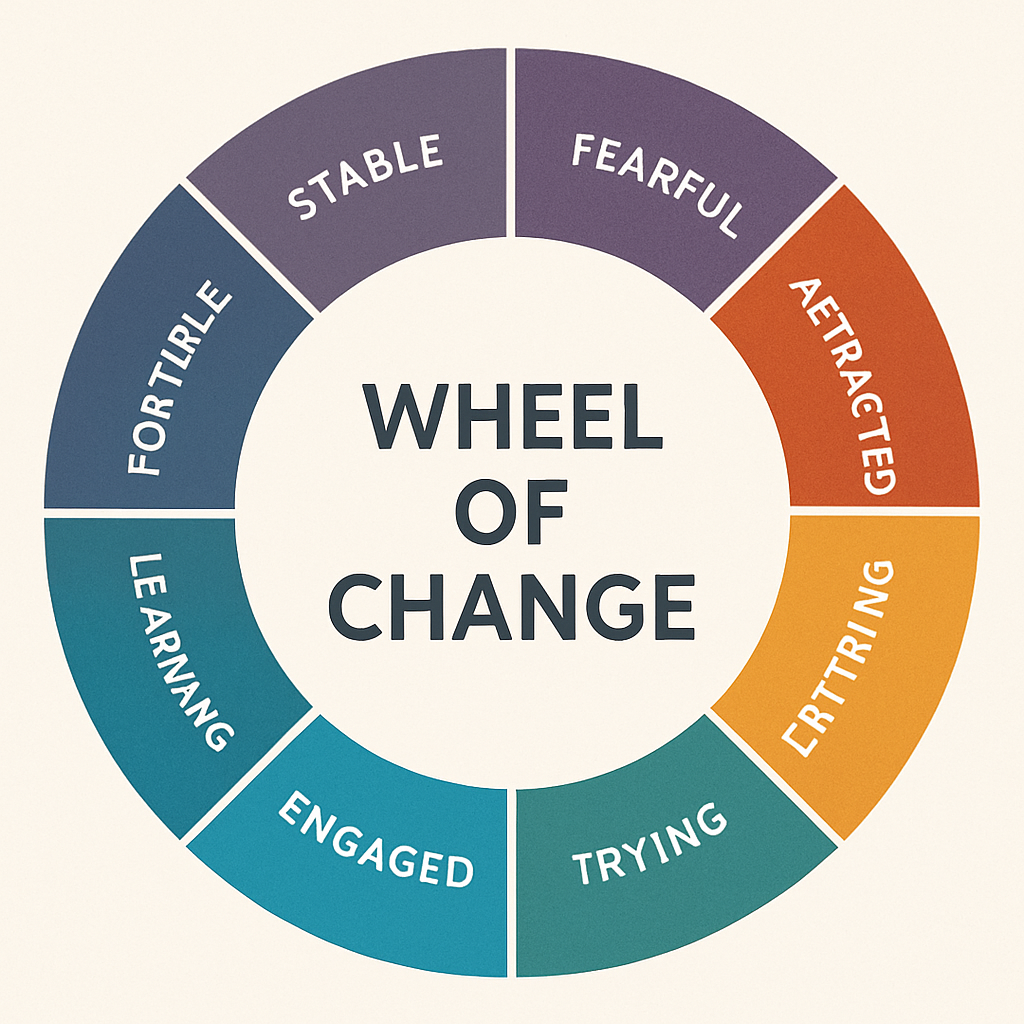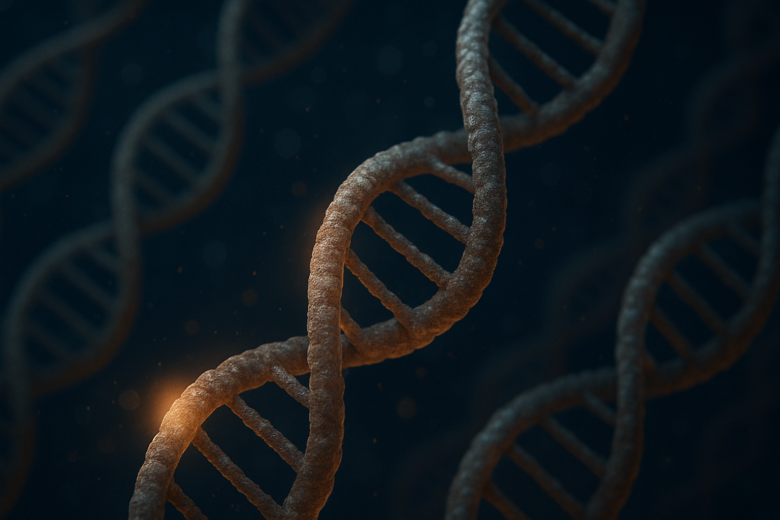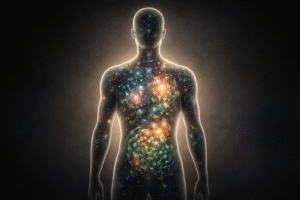Fun fact: Your skin completely renews itself roughly every 2–4 weeks—so you’re wearing a new ‘you’ more often than you think.
We’ve all heard the claim— “you change every seven years.” Maybe your aunt said it at a family dinner. Or it came up during a conversation about relationships, careers, or personal growth. But is it a profound truth about human evolution? Or just a feel-good myth dressed up as science?
Let’s pull back the curtain on this popular idea and see what science actually says. Are we really new people every seven years? Or is the truth messier—and far more interesting?
Where Did the “Seven-Year Cycle” Idea Come From?
The seven-year idea has ancient roots. The Greek philosopher Hippocrates, often considered the father of medicine, wrote about seven-year cycles of human life. The concept was later echoed by astrologers and spiritual thinkers, who romanticised the idea that the soul and body undergo dramatic shifts every seven years.
In modern times, it’s become a catchy belief: that every cell in your body regenerates within seven years, making you physically a brand-new person. But is that true from a biological standpoint?
Not quite.
The Truth About Cell Regeneration: It’s Not That Simple
Your body is indeed constantly renewing itself, but not all cells follow the same timeline. And not all cells regenerate at all.
Let’s break it down:
Skin Cells: New You Every Few Weeks
Your skin is the body’s largest organ and also one of the fastest to renew. The outer layer (epidermis) sheds and replaces itself about every 28 days. That’s roughly 13 times a year! So yes, your face today is technically not the same face you wore two months ago.
Red Blood Cells: A 4-Month Life
Your red blood cells live for about 120 days, after which your body makes new ones in the bone marrow. These tiny oxygen couriers are in constant circulation, with about 2 million dying and being replaced every second.
Liver Cells: About 300-500 Days
The liver is a champion of regeneration. Even if a portion is removed, it can regrow. Its cells turn over roughly once a year.
Gut Lining: Daily Renewal
Your intestinal lining faces rough conditions—acid, food particles, and enzymes—so it renews incredibly fast. Some cells in your gut are completely replaced every 2–5 days.
Bones: 10-Year Turnover
Bone cells are surprisingly active. The entire skeleton replaces itself approximately every 10 years. So, your bones from a decade ago? Mostly gone.
Neurons: The Exceptions
Here’s where the myth falls apart. Neurons (nerve cells) in your cerebral cortex do not regenerate. You’re largely born with the neurons you’ll die with. Some areas, like the hippocampus (linked to memory), can make new neurons, but these are exceptions.
So, no—you are not completely renewed every seven years.
Metabolism and Cellular Ageing: Why You Feel Different
Just because you’re not made of entirely new cells doesn’t mean nothing changes. In fact, your metabolism, hormones, and gene expression evolve dramatically over time.
Your Metabolism Slows Down
As you age, metabolic rates slow. This isn’t just about gaining weight—it affects cell repair, energy production, and detoxification.
Epigenetics: Genes Are Switched On and Off
While your DNA stays the same, the expression of genes (epigenetics) can change based on lifestyle, environment, and ageing. In other words, your body reads your genes differently at 20 than it does at 40.
Telomeres: The Biological Clock
Telomeres are protective caps at the end of your chromosomes. They shorten with each cell division and are associated with ageing. While telomere length doesn’t reset every seven years, it’s a critical factor in how your cells age and function.

But What About Personality and Psychology?
Now here’s where things get a little squishier—and more poetic. Many people feel that they’ve changed emotionally, mentally, or spiritually every 7–10 years. That’s not biology; it’s psychology.
Psychologists have observed that major shifts in personality and identity often happen in roughly decade-long stages, especially in Western societies. These shifts can be triggered by milestones—finishing school, starting a career, becoming a parent, retiring—or by inner growth.
Erik Erikson’s 8 Stages of Psychosocial Development
The psychoanalyst Erik Erikson proposed that we go through eight stages of identity development throughout life. These aren’t tied to cell turnover, but they do reflect periodic internal transformation.
So while your cells may not all regenerate every seven years, your sense of self might.
Real-Life Case Study: How the Body Heals Over Time
Consider the case of organ transplant recipients. Their experience gives insight into how different cell types behave:
- Skin at the incision site can regenerate in weeks.
- The liver or kidney transplant integrates over months.
- But the neural system (nerves near the transplant site) may take years—or never fully regenerate.
This uneven regeneration timeline shows how complex and varied the human body truly is.
Myth or Metabolism? The Verdict
Let’s be clear:
- The idea that you’re a completely new person every seven years is a myth.
- But your body is in a state of constant change and regeneration—just at wildly different rates.
- And psychologically, we do tend to reinvent ourselves every few years.
So maybe the myth persists not because it’s accurate, but because it feels true.
We want to believe in clean slates. In the ability to leave behind who we were. In rebirth without destruction. And biologically or not, we do evolve—emotionally, socially, spiritually—over time.
Conclusion: You’re Not Who You Were, and That’s Okay
The “you” of seven years ago may have had different habits, dreams, and fears. While your neurons might still be around, your skin, liver, and blood are not. Your body, like your life, is always a work in progress.
So if you feel like a different person today, don’t credit some magical seven-year rule. Credit your lifestyle, your choices, your resilience, and yes, your cells—each working on their own mysterious timeline.
Because in the end, you don’t need to be entirely new to be someone new.
Author’s Note
The idea that we’re “reborn” every seven years is more poetic than scientific. But like many myths, it touches on something deeper—our desire for growth and renewal. Whether through biology or life experience, change is always happening. That alone is worth reflecting on.
G.C., Ecosociosphere contributor.
References and Further Reading
- Harvard Medical School. Do you really replace your skin every 7 years?
- Scientific American. Do Our Bodies Really Replace Themselves Every 7 Years?
- Are You Ageing Faster Than You Feel? | Simply Nootropics AU. https://simplynootropics.com.au/blogs/news/are-you-ageing-faster-than-you-feel




